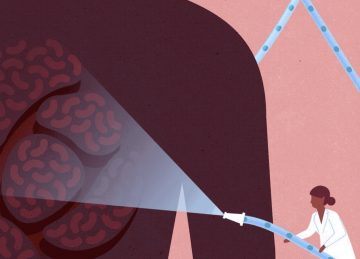Ilana Yurkiewicz in Undark:
 As a doctor who treats cancer, I think a lot about how to frame new treatments to my patients. I never want to give false hope. But the uncertainty inherent to my field also cautions me against closing the door on optimism prematurely. We take it as a point of pride that no field of medicine evolves as rapidly as cancer — the FDA approves dozens of new treatments a year. One of my biggest challenges is staying up to date on every development and teasing apart what should — and shouldn’t — change my practice. I am often a mediator for my patients, tempering theoretical promises with everyday realism. To accept a research finding into medical practice, I prefer slow steps showing me proof of concept, safety, and efficacy.
As a doctor who treats cancer, I think a lot about how to frame new treatments to my patients. I never want to give false hope. But the uncertainty inherent to my field also cautions me against closing the door on optimism prematurely. We take it as a point of pride that no field of medicine evolves as rapidly as cancer — the FDA approves dozens of new treatments a year. One of my biggest challenges is staying up to date on every development and teasing apart what should — and shouldn’t — change my practice. I am often a mediator for my patients, tempering theoretical promises with everyday realism. To accept a research finding into medical practice, I prefer slow steps showing me proof of concept, safety, and efficacy.
CAR-T, nearly three decades in the making, systemically cleared these hurdles. Not only did the product work, its approach was also unique among cancer treatments. Unlike our usual advances, this wasn’t a matter of prescribing an old drug for a new disease or remixing known medications. CAR-T isn’t even a drug. This is a one-time infusion giving a person a better version of her own immune system. When the FDA approved its use, it wasn’t a question of whether my hospital would be involved, but how we could stay ahead. We weren’t alone.
More here.
